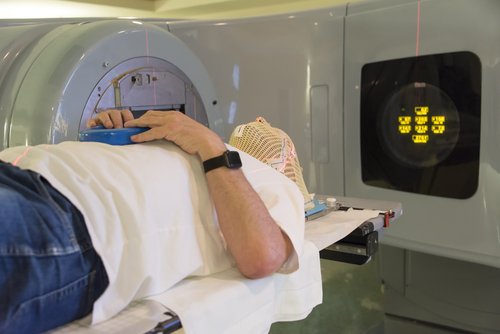Prostate cancer patients treated with Cesium-131 brachytherapy maintained their urinary- and bowel-related quality of life years afterward, according to a study.
While patients reported a decline in these quality of life measures immediately after brachytherapy, they achieved a full recovery within six months. Brachytherapy involves inserting radioactive seeds in or near tumor to kill it.
The research, “Long-term Quality of Life in Prostate Cancer Patients Treated with Cesium-131,” was published in the Journal of Radiation Oncology, Biology, Physics.
“This study reinforces the position of Cesium 131 as an effective, patient-friendly treatment for localized prostate cancer,” Bill Cavanagh, chief scientific officer of the brachytherapy company IsoRay, said in a news release. “This is especially important as multiple studies are emerging that strongly suggest that the inclusion of brachytherapy must be considered for the treatment of high-risk prostate cancer – the toughest localized prostate cancer to cure.”
Prostate brachytherapy alone, or combined with external beam radiation therapy (EBRT), is a widely used treatment for men with prostate cancer. By placing radioactive seeds in or near the tumor, brachytherapy spares surrounding, healthy tissues from radiation damage.
Isoray‘s Cesium-131 (Cs-131) brachytherapy uses capsules the size of a grain of rice that release a personalized dose of radiation over several days.
To evaluate the long-term quality of life of men treated with Cesium-131 brachytherapy, researchers at the University of Pittsburgh Medical Center surveyed 290 patients treated more than four years ago.
The team asked the patients to fill out an Expanded Prostate Cancer Index Composite (EPIC) questionnaire and the American Urological Association Symptom Score (AUASS) survey. EPIC measures quality of life after treatment.
The main goal of the study was to evaluate urinary and bowel side effects stemming from the brachytherapy treatment.
A median of 5 1/2 years after brachytherapy, patients reported no significant changes in their EPIC or AUA scores.
Researchers found a statistical worsening in EPIC scores for urinary incontinence, however.
The quality of life of patients treated with EBRT or alpha-blocker therapy (ABT) improved over time, according to a subset analysis. There was no change in patients treated with androgen deprivation therapy (ADT),
Overall, the study showed that there were minimal long-term changes in patients’ urinary and bowel quality of life after brachytherapy.
The findings suggest that men treated with this form of radiotherapy can recover and maintain their pre-treatment quality of life long term, the researchers said.
“We have previously reported that Cesium-131 leads to quicker recovery of voiding function, with return to clinical baseline by 3 months and statistical baseline by 6 months post-treatment,” said Ron Benoit, a urologist who was the study author. “Our current findings strengthen this body of literature by demonstrating that patients treated with the Cesium-131 isotope are able to maintain this baseline quality of life in the long term.
“We continue to observe that Cesium-131’s short half-life [the time it takes for it to lose half its strength] and high energy provide both long-term efficacy and a lower toxicity profile in prostate cancer patients,” he added.

